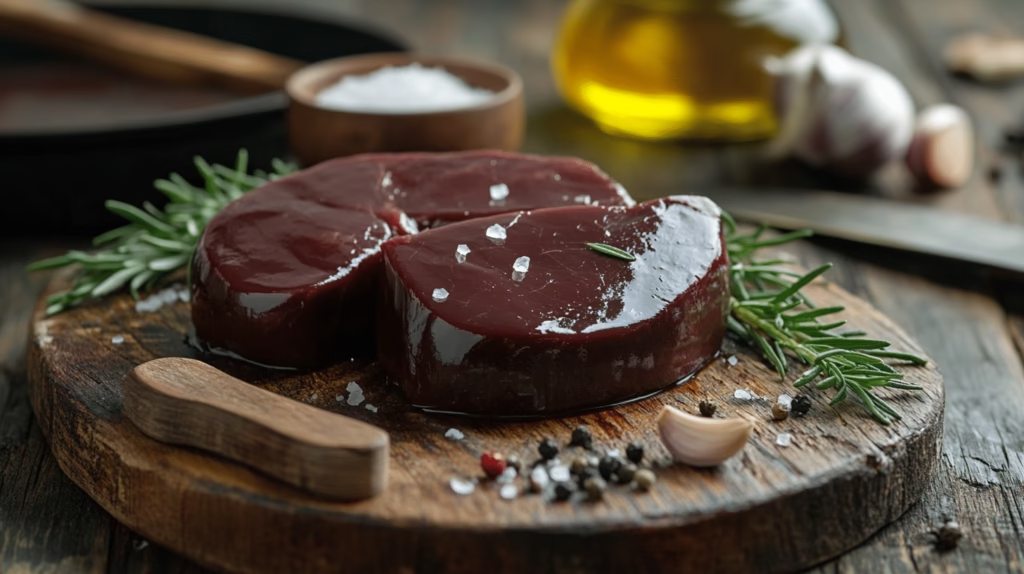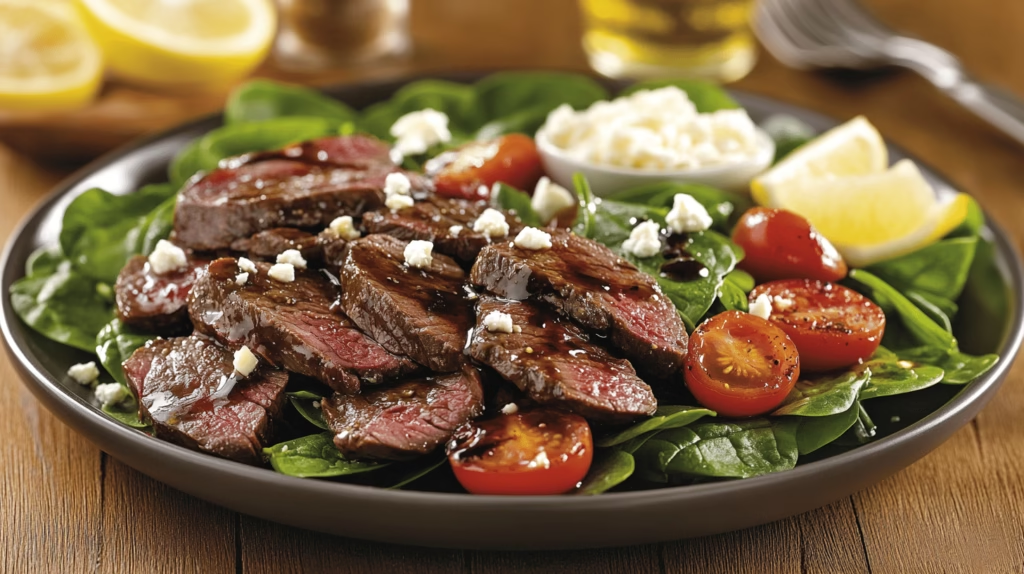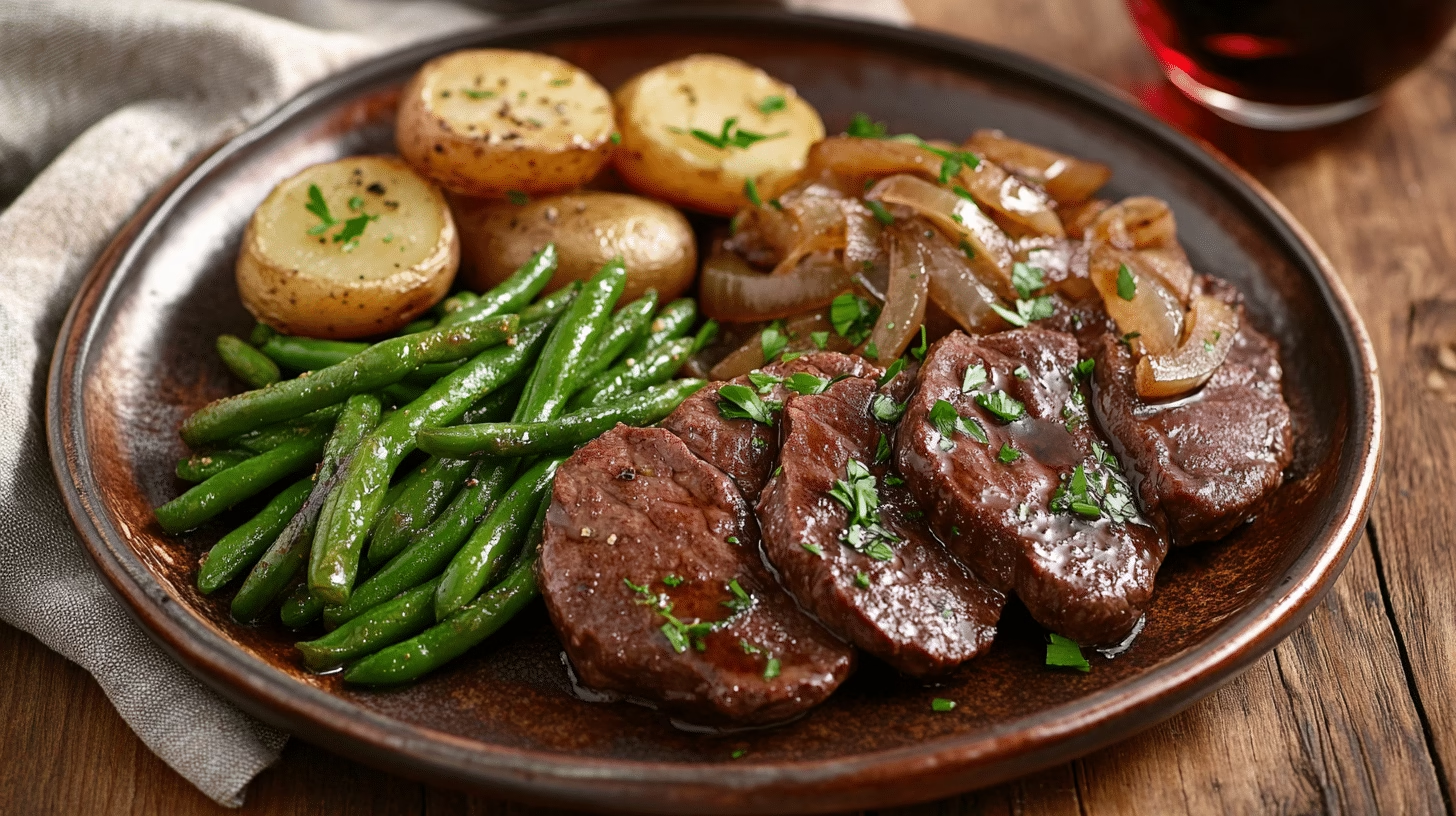Introduction
Beef liver has been celebrated as a nutrient powerhouse, yet it often raises questions about its health benefits and potential risks. This organ meat, long revered in traditional diets, is rich in essential nutrients that support overall well-being. However, due to its potent nutritional profile, it’s crucial to understand the advantages and considerations of including beef liver in your diet. In this article, we’ll delve into the science-backed health benefits, potential drawbacks, and best practices for consuming beef liver.
Nutritional Profile of Beef Liver
Macronutrient Composition
It is exceptionally nutrient-dense, providing a balance of macronutrients essential for health. It is high in protein, with about 23 grams per 100 grams, making it an excellent source for muscle growth and repair. The fat content is moderate, offering around 3.6 grams per serving, mostly from healthy fats. Carbohydrate levels are negligible, as beef liver is primarily a protein-focused food. This macronutrient combination makes it a low-calorie yet highly satiating option. According to Beef Liver Nutrition Facts and Health Benefits, its nutrient density supports weight management and energy balance.
Micronutrient Density
It truly shines in its micronutrient content. It is a remarkable source of vitamin A, providing over 300% of the daily recommended intake in just one serving. This fat-soluble vitamin is vital for vision, immune function, and skin health. It also offers a wealth of B vitamins, including B12, which supports red blood cell formation and neurological health. In terms of minerals, beef liver contains high levels of iron (particularly heme iron, which is highly bioavailable), zinc, and copper, all of which are essential for numerous physiological functions. Additionally, the selenium in beef liver contributes to antioxidant protection, reducing oxidative stress.
Comparison with Other Meats
When stacked against traditional muscle meats like beef steak, chicken breast, or pork chops, it stands out as a nutrient-dense powerhouse. While muscle meats are excellent sources of protein and certain vitamins, they pale in comparison to the concentration of vitamins and minerals found in beef liver.
For example:
- Vitamin A: It contains up to 10 times the amount of vitamin A compared to muscle meats. This makes it an exceptional choice for individuals looking to improve their vision, skin health, or immune function. Muscle meats, on the other hand, contribute little to daily vitamin A intake.
- Vitamin B12: Beef liver is a superior source of B12, offering significantly higher amounts than beef steak, chicken breast, or pork. This is particularly important for people with B12 deficiencies, as muscle meats may not provide enough to meet their needs.
- Iron and Copper: While beef steak contains some heme iron, beef liver far surpasses it, delivering a concentrated dose of iron along with copper, a mineral rarely found in significant amounts in muscle meats.
Nutritionally, it is a better option for individuals needing to boost energy levels, prevent anemia, or supplement micronutrients. It provides a higher return on nutrients per calorie, meaning you can consume smaller portions and still meet your daily requirements for key vitamins and minerals.

This nutritional density makes beef liver ideal for those on calorie-restricted diets, individuals recovering from illness or surgery, and anyone looking to maximize their nutrient intake without significantly increasing calorie consumption. However, due to its intense flavor and higher risk of overconsumption of certain nutrients like vitamin A, beef liver is best consumed in moderation alongside a balanced diet that includes muscle meats for variety.
Health Benefits of Eating Beef Liver
It is a nutritional powerhouse, offering a variety of health benefits that support nearly every system in the body. Let’s explore these benefits in more detail.
Rich Source of Vitamin A
Vitamin A is one of the standout nutrients in beef liver. A single serving provides well over the recommended daily intake. This essential fat-soluble vitamin is crucial for eye health. It reduces the risk of night blindness by supporting rhodopsin production, a protein in the retina that helps us see in low light.
Beyond eye health, vitamin A boosts the immune system. It helps the body fight infections by improving the function of white blood cells. Its anti-inflammatory properties are also great for skin health. Vitamin A promotes cell turnover, speeds up wound healing, and reduces acne. It even helps maintain a youthful complexion. According to Is Eating Liver Good for You?, vitamin A also strengthens mucosal barriers. These barriers are the body’s first defense against pathogens.
However, moderation is essential when eating beef liver. Too much vitamin A can cause toxicity. Symptoms include nausea, dizziness, and even liver damage.
High in B Vitamins
It is a rich source of B vitamins, particularly B12, B6, and folate, which are critical for numerous bodily functions.
- Vitamin B12: This vitamin supports the production of red blood cells, preventing anemia and promoting oxygen transport throughout the body. B12 also contributes to a healthy nervous system, helping to maintain cognitive function and reduce the risk of neurodegenerative diseases.
- Vitamin B6: Essential for amino acid metabolism, B6 aids in the production of neurotransmitters such as serotonin and dopamine, which regulate mood and sleep.
- Folate (Vitamin B9): Important for DNA synthesis and cell division, folate is particularly vital for pregnant women, as it helps prevent neural tube defects in developing fetuses.
These B vitamins collectively play a role in energy production by converting food into usable energy, making beef liver an excellent choice for those experiencing fatigue or needing an energy boost.
Iron Content for Blood Health
It is one of the best dietary sources of heme iron, the form of iron most readily absorbed by the body. This makes it an effective remedy for preventing and treating iron-deficiency anemia, a condition characterized by fatigue, weakness, and pale skin.
Heme iron in beef liver is more bioavailable than non-heme iron found in plant-based foods like spinach or beans, which means it’s absorbed more efficiently by the body. This makes beef liver particularly beneficial for:
- Menstruating women: To replenish iron lost during menstruation.
- Pregnant women: To support increased blood volume and oxygen delivery to the fetus.
- Individuals recovering from surgery or injury: To aid in the regeneration of red blood cells and hemoglobin.
Iron from beef liver also supports brain function, as oxygen-rich blood is essential for cognitive performance and concentration.
Antioxidant Properties
It contains Coenzyme Q10 (CoQ10), a powerful antioxidant that plays a dual role in protecting cells from oxidative damage and supporting energy production. CoQ10 is found in high concentrations within mitochondria, the energy powerhouses of cells, where it assists in generating ATP (adenosine triphosphate), the body’s primary energy currency.
The antioxidant properties of CoQ10 make it effective in combating oxidative stress, a condition linked to premature aging and chronic diseases such as heart disease, diabetes, and cancer. Research also suggests that CoQ10 may improve heart health by supporting blood vessel function and reducing inflammation.

In addition to CoQ10, beef liver contains selenium, another potent antioxidant that helps neutralize free radicals and supports thyroid function. Selenium works synergistically with vitamin E to protect cells from damage and maintain overall health.
Comprehensive Health Support
It offers a wide range of health benefits. It improves vision, boosts immunity, enhances energy, and reduces oxidative stress. Its nutrients provide comprehensive support for overall health.
Eating beef liver in moderation can deliver significant benefits. It helps improve blood health, supports metabolism, and enhances cognitive function.
By balancing your intake, you can enjoy its full nutritional potential. This superfood is highly beneficial when consumed carefully, helping to minimize any risks from overconsumption.
Potential Risks and Considerations
Vitamin A Toxicity
While vitamin A is essential, excessive consumption can lead to hypervitaminosis A, a condition characterized by nausea, dizziness, and even liver damage. This risk underscores the importance of moderation, as excessive intake can outweigh the benefits. According to Beef Liver Benefits, Nutrition, Side Effects and How to Use, adults should limit consumption to 1–2 servings per week to avoid toxicity.
Purine Content and Gout Risk
It is relatively high in purines, compounds that can increase uric acid levels in the body. For individuals prone to gout, consuming beef liver may exacerbate symptoms. Monitoring intake and consulting with a healthcare provider are essential steps for those with a history of gout or related conditions.
Cholesterol Concerns
Although it is high in cholesterol, recent research suggests that dietary cholesterol has a minimal impact on blood cholesterol for most people. However, those with familial hypercholesterolemia or other lipid disorders may need to exercise caution when incorporating beef liver into their diets.
Recommended Serving Sizes and Frequency
To enjoy the health benefits of beef liver without risking overconsumption, it’s best to follow recommended serving guidelines. A portion size of 3–4 ounces (85–115 grams) is sufficient to meet nutritional needs. Most experts recommend consuming beef liver no more than once or twice a week. For pregnant women, it’s important to consult a doctor, as excessive vitamin A intake can pose risks to fetal development.
Preparation and Cooking Methods
Selecting Quality Beef Liver
Choosing high-quality beef liver is crucial for maximizing nutritional value. Opt for grass-fed or organic options whenever possible, as these tend to be lower in contaminants and richer in beneficial nutrients. Look for beef liver with a vibrant color and firm texture, indicating freshness.
Cooking Techniques
The key to preparing beef liver is to avoid overcooking, which can result in a tough, unpleasant texture.
- Sautéing: A quick sear with onions and herbs can enhance its natural flavor.
- Grilling: Imparts a smoky taste while retaining the liver’s moisture.
- Baking: A gentle method that pairs well with spices for a more robust flavor profile.
Recipe Ideas
Traditional dishes, such as liver and onions, remain popular, but modern adaptations like liver pâté or blending liver into ground beef for burgers can make it more palatable for those new to organ meats.
Articles You Might Be Interested By:
If you’re learning about the benefits of eating liver, here are some related articles from the site that might pique your interest:
- Beef Liver Recipe
- What Foods Can You Eat Unlimited Amounts of on Keto?
- Delmonico Steak
- Chuck Eye Steak
- Village Soup
These articles delve into various aspects of liver, steak recipes, and hearty dishes to complement your exploration!
FAQs
Is eating beef liver healthy?
Yes, it is considered one of the most nutrient-dense foods available. It is rich in essential vitamins like A, B12, and B6, as well as minerals such as iron, copper, and selenium. Consuming beef liver in moderation can support energy production, immunity, and overall health. However, overconsumption can lead to issues like vitamin A toxicity.
Can eating beef liver help with iron deficiency?
Absolutely! it is an excellent source of heme iron, the most bioavailable form of iron. It helps increase hemoglobin levels and is especially effective for individuals with iron-deficiency anemia. Including small portions of beef liver in your diet can significantly improve iron levels.
How does beef liver compare to chicken liver nutritionally?
While both are nutrient-dense, it generally contains more vitamin A and iron than chicken liver. However, chicken liver tends to have a milder taste and is slightly lower in cholesterol, making it a preferred option for those who are new to organ meats or have dietary restrictions.
Are there any groups of people who should avoid eating beef liver?
Yes, certain populations should exercise caution:
- Pregnant women should limit their intake due to the risk of consuming too much vitamin A, which can harm fetal development.
- Individuals with gout or high uric acid levels should avoid beef liver because of its high purine content.
- People with lipid disorders may also need to limit their intake due to its cholesterol content.
What are the signs of vitamin A toxicity from eating too much beef liver?
Symptoms of vitamin A toxicity, or hypervitaminosis A, can include:
- Nausea and vomiting
- Dizziness or headaches
- Joint pain
- Liver damage in severe cases
To avoid these issues, stick to the recommended serving sizes of 3–4 ounces (85–115 grams) once or twice per week.
How should I store beef liver to keep it fresh?
Fresh beef liver should be refrigerated and consumed within 1–2 days of purchase. Alternatively, you can freeze it in an airtight container or freezer bag, where it will last for up to three months without losing quality.
Conclusion
It is undeniably one of the most nutrient-rich foods available, offering a wealth of vitamins, minerals, and health benefits. However, its consumption requires balance to avoid potential risks like vitamin A toxicity or gout flare-ups. By incorporating this organ meat into your diet in moderation and using proper preparation techniques, you can enjoy its many benefits while maintaining overall health.
For more on the nutritional benefits of beef liver, explore Beef Liver Nutrition Facts and Health Benefits.

